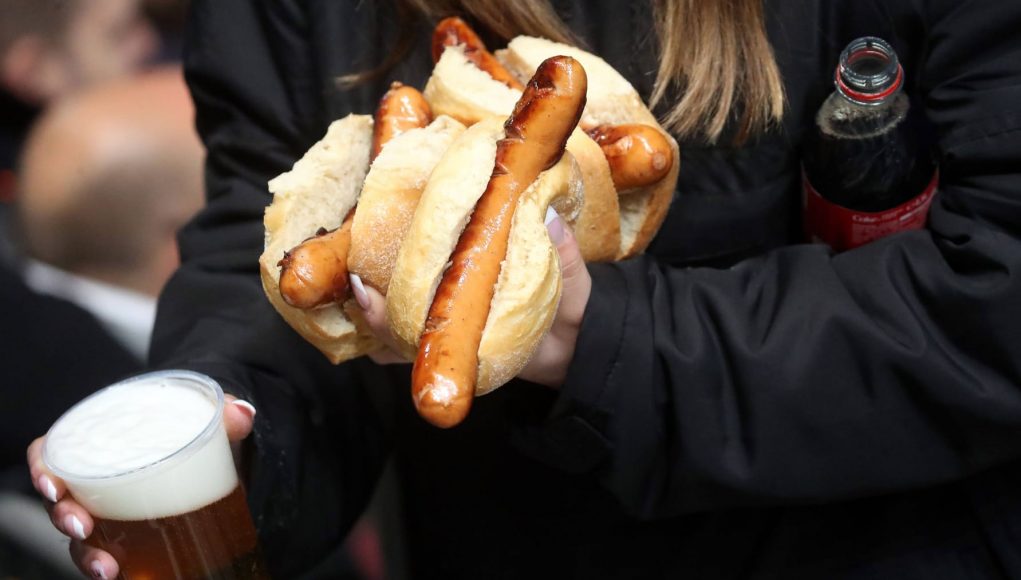The European Football Championship starts in Germany in mid-June. Retailers are hoping for a billion-dollar profit – but that depends on one factor in particular.
German retailers are hoping for a boost from the European Football Championship in their own country. The tournament could generate 3.8 billion euros in additional sales, the industry association HDE announced on Tuesday in a joint survey with the market research company Appinio among 1,000 people.
“In the retail sector, major sporting events always provide a boost to sales,” said HDE General Manager Stefan Genth. “This year's home European Championships could boost consumption in individual sectors and product groups.”
Food is popular, for example. Over 41 percent of those surveyed want to buy snacks, barbecue food, drinks and other food. 31 percent buy fan merchandise such as scarves, flags and decorative products. According to HDE, individual sales effects can also be expected for sporting goods, home and garden products, toys and electronics.
“Development of European Championship sales in retail also depends on the course of the tournament”
According to the survey, most of those surveyed who plan to spend money on the Euro 2016 football championship (32 percent) plan to make additional purchases of between 101 and 200 euros. 28 percent expect to spend between 51 and 100 euros, while eight percent plan to spend more than 500 euros.
“The development of European Championship sales in retail is also linked to the course of the tournament,” said Genth. “If the German national team achieves another summer fairytale and gets far, that could noticeably increase consumer sentiment.”
The majority of respondents are interested in the European Championship, which will take place in Germany from June 14 to July 14. Almost 70 percent plan to watch all or selected matches of the tournament. Those surveyed have mixed expectations about the performance of the German national team under coach Julian Nagelsmann. Around 25 percent of them believe that reaching the quarter-finals is likely, and around a fifth expect the team to make it to the final in Berlin.
Embed
“Bratwurst instead of restaurant”
While trade could benefit, economists are not expecting a consumer boom in Germany. “The experience of the 2006 World Cup shows that major sporting events are not a fireworks display for the economy,” Michael Grömling, head of economics at the employer-friendly Institute of the German Economy (IW Cologne), recently stressed.
Many consumers will probably use the European Championship as an opportunity to buy a new television, invite people to a public viewing event or drink an extra beer while cheering. “But they will save money elsewhere: Bratwurst instead of a restaurant, watching TV instead of going to the cinema,” said Grömling. “Consumer spending will therefore not necessarily increase, but rather shift.”































